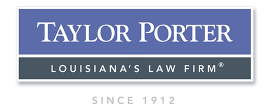Louisiana Attorney General Publishes Consumer Tips Guide for Flood Victims
September 12, 2016
Click here to read PDF
Louisiana Attorney General Jeff Landry has released a comprehensive guide for flood disaster victims, "Consumer Tips for Natural Disaster Victims," to help protect Louisiana citizens from becoming victims of fraud, scams, or price gouging before, during and after natural disasters.
Below are some tips from Jeff Landry's office. Please call 1-800-351-4889 for the consumer protection hotline to report any violations.
Price Gouging
- Price gouging occurs when someone charges exorbitant and unjustified prices for products or services during declared states of emergency.
- Price gouging is not attributable to verifiable market fluctuations and usually involves drinking water, food, batteries, and gasoline.
- Report suspected price gougers to your Sheriff or District Attorney and to Attorney General Jeff Landry’s Consumer Protection Section at 800-351-4889. You may also file a report at www.AGJeffLandry.com
- When reporting price gouging, be sure to include the name and address or location of the merchant and the cost of the item or service. Also include your name, address, and telephone number so you may be reached if additional information is needed.
Fake Officials
- Some con artists portray themselves as government officials or insurance adjusters to obtain access into your home. This is a common ploy for burglars, identity thieves, and individuals selling expensive and unnecessary repairs.
- Many represent themselves as brokers who say they can obtain FEMA funds.
- Ask for identification and verify credentials of people offering low-interest government loans or requesting fees for services.
- Remember FEMA does not charge an application fee.
Contractors
- Get at least three estimates (bids) and make sure each contractor bids on exactly the same work. All bids should be itemized and detailed.
- Always require the contractor show you proof of insurance such as workman’s compensation and general liability insurance. Call that insurer to confirm coverage.
- Verify the contractor’s address and ask for references of previous customers, inspecting work done for them when possible. Make sure the contractor is licensed through the Louisiana State Licensing Board for Contractors at www.lslbc.louisiana.gov
- Do not agree to a large down payment. A reputable contractor will not normally require a down payment over 10% to 25% of the total price.
- If possible, accompany the contractor to the building supply store and pay for the materials yourself. And have the materials delivered directly to your home or jobsite rather than the contractor’s shop.
- Get a guarantee and a contract in writing. Do not accept verbal guarantees or agreements. Any changes in the contract should be in writing and initialed by both parties. Keep a signed, legible copy of the contract in a safe place.
- Always pay by check or money order and keep a receipt. Write all checks to the company, not the individual worker.
Photographs
- Take pictures of home damage before repair work begins and as work on your home progresses.
- Take pictures of your contractors, their employees, their vehicle license plates, and the company names on sides of vehicles.
- Remember to save all pictures in a secure location.
Fake Charities
- Do not donate to any charity that asks for cash or wired donations and that does not provide proof your contribution would be tax-deductible.
- Search the IRS web site to determine which organizations are eligible to receive tax deductible contributions at https://apps.irs.gov/app/eos/
- Be wary of charities that arise immediately after a natural disaster.
- Learn more about a charity’s trustworthiness on the Better Business Bureau’s Wise Giving Alliance website at www.give.org
Sham Rental Property
- Many con artists advertise rental property on social media sites, requiring the potential renter to wire money.
- When possible have someone visit the physical location of the advertised property.
- Never wire money or give out your bank account or credit card information over the phone or internet.
- Insist on a face-to-face transaction with a written rental agreement.
Pest Control
- Receding flood waters will bring out pests.
- Beware of free inspections that could result in unnecessary repairs and expenses.
- Get a second opinion.
Water Treatment Devices
- If you think your drinking water may have been affected by storms, contact the public health or water department before purchasing a water treatment unit.
- Be aware of unscrupulous companies selling watertreatment devices.
- Offers to test the tap water in your home for free are almost always a part of a sales promotion. Home water treatment is seldom needed for health protection and no single device can solve all kinds of water problems.
- If in doubt, boil your water vigorously for at least one full minute or drink bottled water until you can follow safe drinking water guidelines. Visit www.epa.gov for water safety tips.
Auto Repairs
- If your car was submerged or standing in over a foot of water for more than an hour, have the car checked out by a car dealer or a repair shop. Even if the car runs, there may be hidden damage that could pose serious problems at some later date.
- Be sure to get detailed, written estimates and keep copies of all receipts and invoices.
- If you are in the market to buy a used vehicle, inspect it carefully. Look at hidden parts or crevices to check for mud or silt, indicators of the car having water damage.
Read our Case Studies
See how we can help. Contact us today
- Disclaimer
- © Taylor, Porter, Brooks & Phillips L.L.P. All rights reserved.



